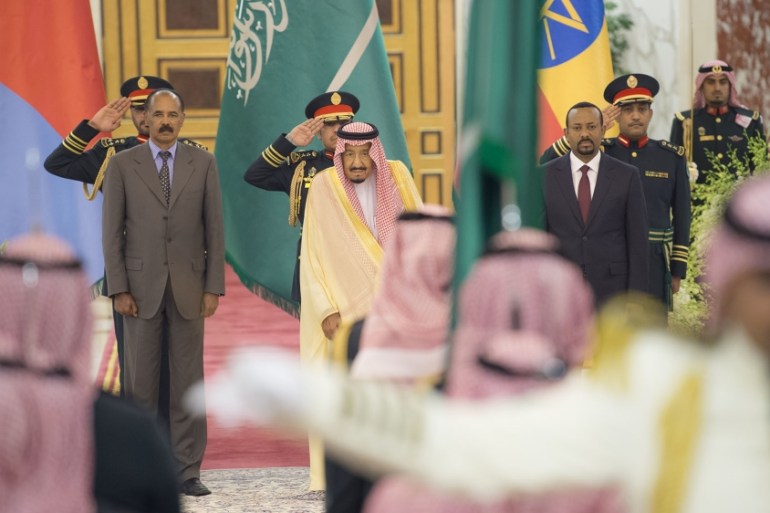What you need to know:
The war that began in November 2020 between forces of the government of Prime Minister Ahmed Abiy and the Tigray People’s Liberation Front (TPLF) has caused great human suffering. It has extended southwards to the Amhara region and eastwards to the Afar region.
A joint investigation by the UN Human Rights Council and the Ethiopian Human Rights Commission (EHRC) found that parties on both sides of the conflict have committed serious human rights abuses
Fifteen African civil society organisations have warned that the ongoing war in Ethiopia could equal the 1994 genocide in Rwanda, unless the United Nations immediately puts the conflict on its agenda.
In a May 18 letter to the UN Security Council, the groups say that besides war crimes and crimes against humanity on both sides of the conflict, words such as “cancer” and “devil” that are used to refer to human beings cast as opponents reflect what preceded the 1994 Rwandan genocide.
In Rwanda, the then Hutu-led government referred to the Tutsi population as “cockroaches”, giving the impression that they were parasites that needed to be exterminated.
“Twenty-eight years ago, the Security Council similarly failed to recognize the warning signs of genocide in Rwanda or act to stop it,” says the letter that was spearheaded by Hala Al Karib, a women’s rights activist in the Horn of Africa and Sudan region, and Corlett Letlojane, executive director of the Human Rights Institute of South Africa.
“The United Nations had the means to intervene, but simply did not care enough about Rwanda to intervene appropriately. We are concerned that the situation is repeating itself in Ethiopia today. We call on you to learn the lessons from Rwanda and act now.”
The war that began in November 2020 between forces of the government of Prime Minister Ahmed Abiy and the Tigray People’s Liberation Front (TPLF) has caused great human suffering. It has extended southwards to the Amhara region and eastwards to the Afar region.
A joint investigation by the UN Human Rights Council and the Ethiopian Human Rights Commission (EHRC) found that parties on both sides of the conflict have committed serious human rights abuses, including attacks on civilians, unlawful killings and extrajudicial executions, torture, arbitrary detentions, abductions and enforced disappearances and rape and other sexual violence.
The government has sought to use food as a weapon of war, blocking humanitarian assistance as a tool to starve Tigrayans into submission. It has been estimated that half a million people have died, 4.2 million have been displaced and nine million are in need of humanitarian assistance.
A recent joint report by Amnesty International and Human Rights Watch based on over 400 interviews conducted over 15 months documents ethnic cleansing in western Tigray. “In this context, there are serious reasons for concern about ongoing ethnic tensions and that violence may rise to the level of genocide,” the letter says.
The groups say that despite the seriousness of the situation, the UN Security Council has failed to formally address the situation in Ethiopia.
“This is a critical moment for the UN to take decisive action that leverages these openings to benefit the people of Ethiopia. This cannot be done, however, without clear leadership from the UN Security Council,” the letter says.
The UN Human Rights Council has taken significant action to bring the human rights violations committed in Ethiopia to light, both through its joint investigation with the EHRC and through the appointment of an international commission of human rights experts.
The group says that the UN Security Council should support these efforts with its diplomatic muscle.
While the announcement of a truce in late March offered an important opening for dialogue, the groups say the UN must take action to ensure that both sides are publicly committed to it, to increase humanitarian aid delivered to Tigray.
“Such action will be vital to assisting the Ethiopian men, women, and children who have been suffering both direct hostilities, associated human rights violations, and obstructed humanitarian aid,” the letter says.
The civil society groups are now demanding that the UN Security Council formally place Ethiopia on its agenda and take several key steps like requesting regular reporting on the situation on the ground in Ethiopia, which will provide the Council with the information that it needs and the forum to monitor how the Ethiopian government and that of the Tigray region comply with their international law obligations.
Other recommendations from the groups include pressing the parties for immediate and unimpeded humanitarian access, including access to detention facilities, where civilians are particularly at risk.
They also propose the imposing of an arms embargo on all parties to the conflict, with a UN monitoring body to report on the implementation of the embargo, and the disarming of militias that have been at the forefront of grave human rights violations.
Others are a call for a verification mechanism to ensure the withdrawal of Eritrean troops from Ethiopia; support for political mediation in the conflict in cooperation with the African Union; and support for the deployment of an AU-led international peacekeeping force in Western Tigray with the mandate to protect civilians and promote the delivery of humanitarian aid.
They also want those responsible for the most serious violations committed over the last 16 months to be made accountable for their actions, including by supporting the work of the International Commission of Human Rights Experts.
(Source:Nation)

:format(webp)/cloudfront-us-east-1.images.arcpublishing.com/tgam/VXFRO3ZZQBMDPIHTOPX5T3EQTU.JPG)
